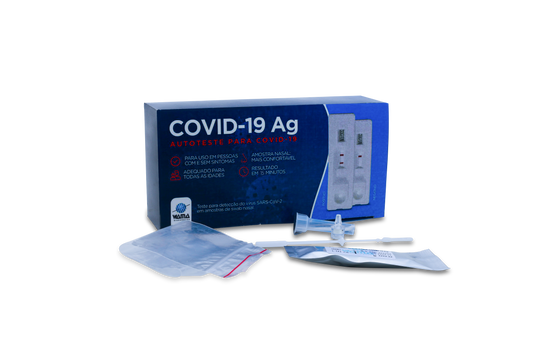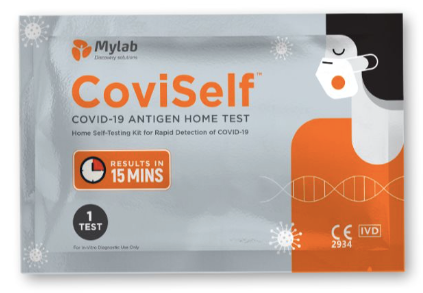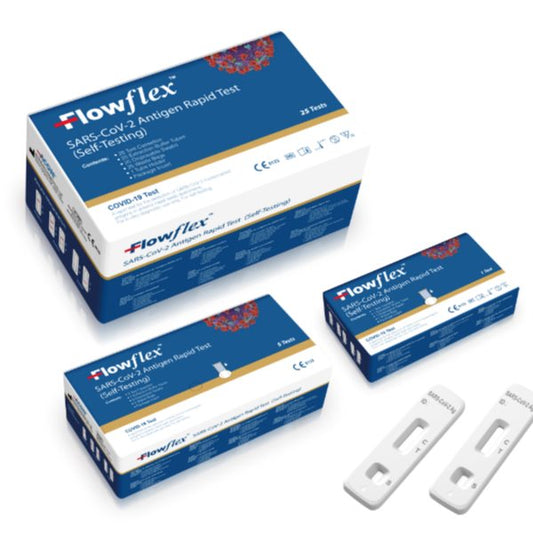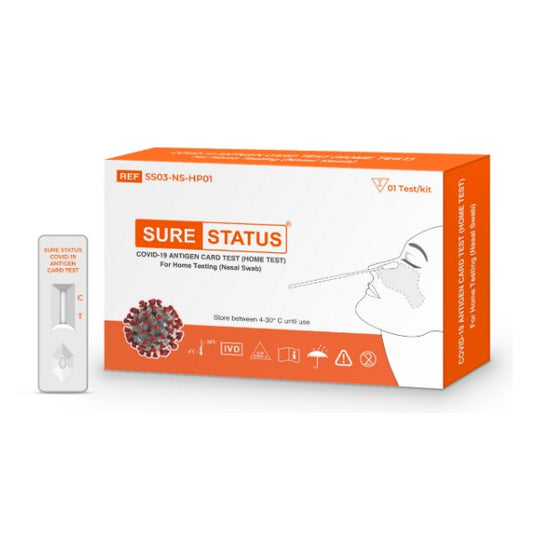-
Alerta COVID-19 Ag Self test (Home)
Vendor:WAMA DiagnosticaRegular price $0.00Regular priceUnit price per -
CoviSelf COVID-19 Rapid Antigen Test Kit (Home)
Vendor:MyLab Discovery Solutions Pvt. Ltd.Regular price $0.00Regular priceUnit price per -
Flowflex SARS-CoV-2 Antigen Rapid Test (Home)
Vendor:ACON Biotech Co LtdRegular price $0.00Regular priceUnit price per -
Sure Status COVID-19 Antigen Card Test (Home)
Vendor:Premier Medical Corporation Private LimitedRegular price $0.00Regular priceUnit price per
Collapsible content
Why is it important to test for COVID-19?
It remains critical for national programmes to continue to offer testing for COVID-19 in line with three main objectives: reduce morbidity and mortality through linkage to prompt care and treatment, reduce onward transmission and track the evolution of the epidemic and the virus itself.
Testing of suspected cases early in the disease course – especially among people at increased risk for hospitalization or severe COVID-19 – enables access to supportive care and COVID-19 therapeutics.• Confirming COVID-19 through testing for SARS-CoV-2 followed by isolation (and follow up of relevant contacts) can reduce transmission. At the population level, fluctuations in testing data can contribute to decisions on intensifying or relaxing public health and social measures.
WHO continues to recommend maintaining and strengthening COVID-19 surveillance, including use of sequencing, to monitor changes in epidemiological patterns, trends in morbidity and mortality, the burden of disease on health care capacity (health and care workers, hospitalizations and intensive care unit admissions) and the evolution and circulation of variants.
(WHO policy brief: COVID-19 testing, 14 September 2022)
What is the difference between PCR and RDT?
Rapid diagnostic tests (RDTs) detect the presence of SARS-CoV-2 viral proteins (antigens) in respiratory tract specimens, most of these are lateral flow immunoassays (LFI), which are typically completed within 30 minutes.
In contrast, Polymerase chain reaction (PCR or rtPCR) is a Nucleic acid amplification test (NAAT), which detect genome sequences based on amplification of the target viral genome.
As RDTs do not rely on genome amplification, antigen tests are less sensitive. Additionally, false positive (indicating that a person is infected when they are not) results may occur if the antibodies on the test strip also recognize antigens of viruses other than SARS-CoV-2, such other human coronaviruses.
Data on the sensitivity and specificity of currently available Ag-RDTs for SARS-CoV-2 have been derived from studies that vary in design and in the test brands being evaluated. They have shown that sensitivity compared to NAAT in samples from upper respiratory tract (nasal or nasopharyngeal swabs) appears to be highly variable, ranging from 0-94% (4-13) but specificity is consistently reported to be high (>97%).
(WHO. Antigen-detection in the diagnosis of SARS-CoV-2
infection Interim guidance. Oct 2021)
What is IgG and IgM antibody testing for COVID-19?
SARS-CoV-2-specific antibodies (Ab) IgG and IgM are part of the immune response to infection, and may be detected during the early, late, convalescent, and post-recovery phases of disease. They are most useful for identifying recent or prior infection.
(FIND 2023)
Useful links
-
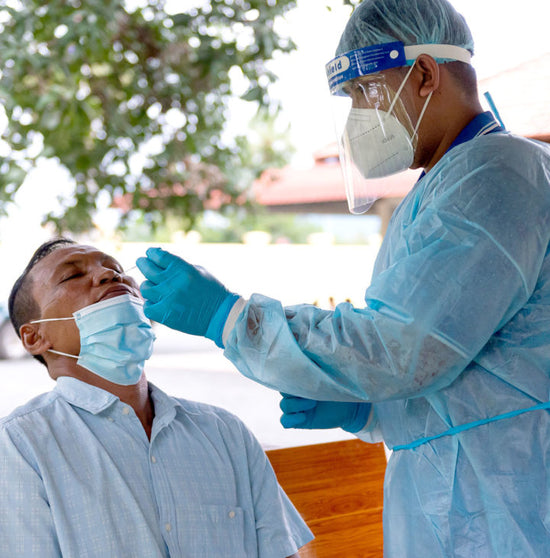
Pandemic threats programme at FIND
Read moreWe are building on advances catalysed by the COVID-19 pandemic to establish sustainable early-warning and response systems for known and emerging pathogens.
-
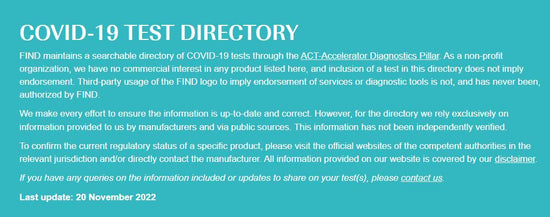
COVID-19 test directory
Read moreFIND maintains a searchable directory of COVID-19 tests through the ACT-Accelerator Diagnostics Pillar.
-
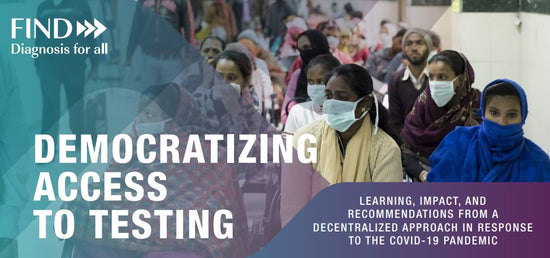
Find out how COVID-19 improved access to testing
Read moreLearning, impact, and reccomendations from a centralized approach in response to the COVID-19 pandemic.

